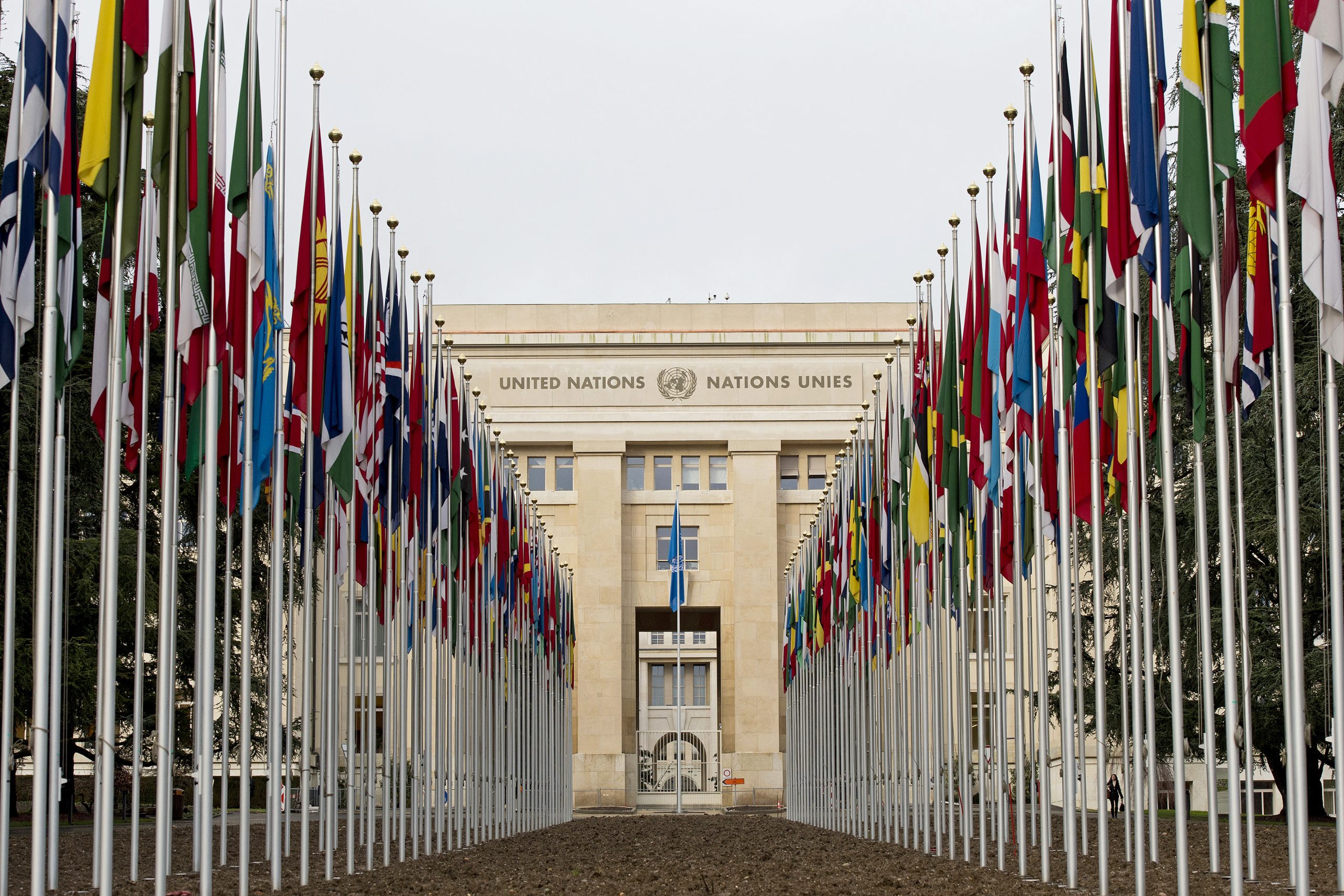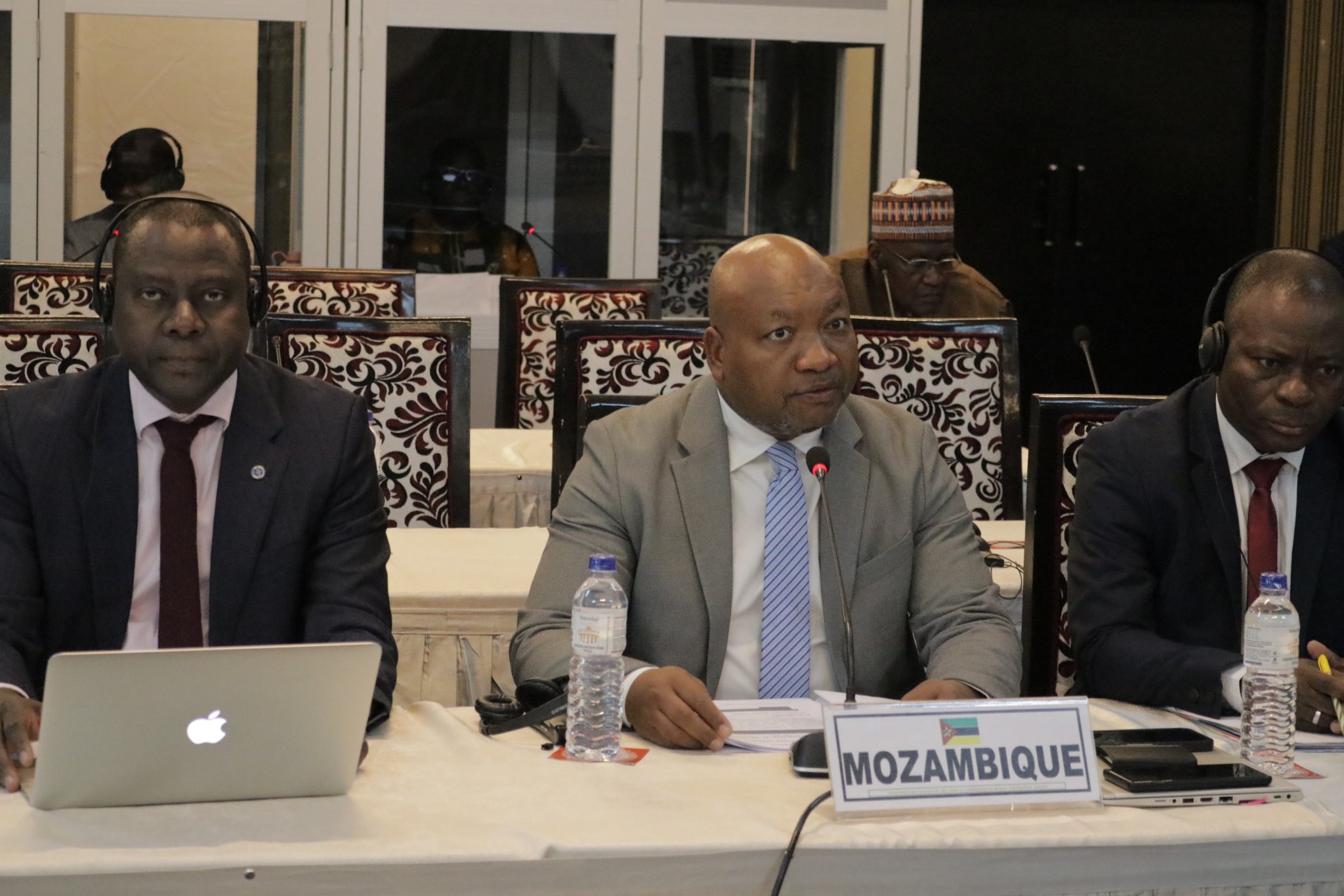(New York) – The withdrawal of UN consultative status from two NGOs in retaliation for statements they made at the UN Human Rights Council lacked procedural safeguards and could have a chilling effect on civil society, ISHR said today.
The United Nations shut the door on two African NGOs when they were stripped of their UN ‘consultative status’. The development followed a vote to withdraw the ‘roster status’ for the African Technology Development Link and the African Technical Association by the UN’s Committee on Non-Governmental Organisations, which recommends Economic and Social Council (ECOSOC) consultative status to NGOs and reviews their UN activities.
These withdrawals mean that the two NGOs will no longer be able to directly engage at the UN Human Rights Council. With roster consultative status, NGOs have the right to make written and oral statements at the Human Rights Council and organise side events, in their own name.
The two NGOs were only made aware of the request (by Pakistan, a Committee member) to withdraw their status in writing a few days before their case was actually considered in the NGO Committee. As a result, these NGOs lacked enough time and information to prepare and to defend themselves properly.
‘We are deeply disturbed by the draft decisions of the Committee concerning the withdrawal of the status of these two NGOs. The process used was hurried and failed to fully respect the procedural safeguards required by ECOSOC Resolution 1996/31,’ said Michelle Evans of the International Service for Human Rights.
‘In particular, the process did not allow the NGOs a reasonable opportunity to respond to the allegations against them. The decision to withdraw their status was taken despite requests from some Committee members for more time to reach out to the NGOs and ask for clarifying information,’ she said.
Earlier in the Committee session, Pakistan had lodged a complaint that the NGOs had violated ECOSOC Resolution 1996/31 by engaging in ‘politically motivated’ acts against member States. The NGOs were accused of making statements at a recent Human Rights Council session on the situation in Baluchistan province and other areas in Pakistan which used ‘language not authorised in UN’ and which made ‘unsubstantiated allegations at Pakistan in violation of their mandate’.
The withdrawal of the status of African Technology Development Link was a result of a vote of 12-5. Greece, India, Israel, United States, Uruguay voted against the withdrawal, while Azerbaijan China, Cuba, Guinea, Iran, Mauritania, Nicaragua, Pakistan, Russia, South Africa, Turkey, Venezuela voted in favour. Burundi and Sudan were absent.
The decision to withdraw the status of African Technical Association was by a vote of 13 in favour (Azerbaijan, China, Cuba, Guinea, Iran, Mauritania, Nicaragua, Pakistan, Russia, South Africa, Sudan, Turkey, Venezuela) to 5 against (Greece, India, Israel, United States, Uruguay). Burundi was absent. Both votes were requested by Pakistan.
Following the votes, the US criticised the lack of transparency in the process and called the decision a rush to judgement: ‘The loss here is for civil society. It will have a chilling effect on civil society as a whole and how they engage with the United Nations,’ the representative of the US said. India also urged that the NGOs be given a fair chance to respond to the Committee’s question and criticised the hasty and presumptuous manner in which the decisions were taken.
ISHR is concerned that the procedure to suspend and withdraw status has been misused more and more in recent years to mute unwanted criticism. It is a means by which Member States in the NGO Committee retaliate for the statements and participation of NGOs at the Human Rights Council. Such harsh measures are unwarranted and inconsistent with NGOs’ right to freedom of expression and opinion.
‘Ironically, these cases were handled by the Committee in complete opposition to the way the application process works,’ said Ms Evans.’Many NGOs seeking accreditation have to wait years before obtaining status or are denied status. However in the case of a withdrawal or suspension of consultative status, the decision is usually pushed through quickly, which makes it extremely challenging for a targeted NGO to defend itself.’
This contradiction indicates that some Committee members have little interest in protecting and promoting civil society’s right to access and communicate with the UN, and are clearly not acting in accordance with the spirit and principles of Resolution 1996/31. In the cases of the two Africa-based NGOs, their roster status — which they had held for decades — was stripped away in a matter of minutes.
‘ISHR calls on member States that are friends of civil society to speak out about the flawed process leading up to the decisions to recommend withdrawal of the UN accreditation of these two NGOs. The Committee should be urged to take the time necessary to receive and to carefully consider and weigh the evidence presented by all parties regarding the complaint, including the NGO. The objective of reaching a fair, balanced, and proportionate response outweighs the goal of acting expeditiously. The decision to suspend or withdraw the status of an NGO should only be taken as a last resort,’ Ms Evans said.
Background
The Committee on NGOs is tasked with considering the applications of NGOs for consultative status with the UN as well as the quadrennial reports submitted by NGOs already in consultative status. Consultative status provides NGOs with access to a range of fora at the UN, including the Human Rights Council, ECOSOC and its subsidiary bodies, and UN special events and conferences. The Committee makes recommendations to the Economic and Social Council (ECOSOC), which can either accept or overturn a decision.
At the recent resumed session in New York, from 26 May to 3 June and 12 June, the Committee approved 159 NGOs for consultative status to the UN, but deferred a further 229 applications to be reviewed again during the next session held in January 2016. Of the new applications that were reviewed this session, 57% were recommended for status, while a mere 22% of applications that were deferred during previous sessions were recommended for status. Although these numbers have increased since the regular session of these year, they are still low.
Of these repeatedly deferred applications, a majority are NGOs that work on sexual orientation and gender identity issues, women’s rights, reproductive and sexual rights, minority rights, caste, and human rights more generally. For example, in order to defer the application of the UK based NGO Population Matters, the South African delegation posed a question suggesting that ‘there is no such thing as sexual and reproductive rights’.
The dysfunction of the Committee is rooted in the State membership. Repressive States such as Azerbaijan, Iran and Mauritania recently took seats earlier this year alongside long-standing members China, India, Pakistan, Nicaragua, Russia and Venezuela for the period of 2015-2019. With this new composition, human rights NGOs will face greater challenges in obtaining consultative status for years to come.
Some of the organizations whose applications were once again blocked by the Committee were: Collectif des Families de Disparu(e) en Algerie (CFDA), the Geneva Institute for Human Rights (GIHR), International Dalit Solidarity Network (IDSN), Iran Human Rights Documentation Center (IHRDC), Institute for Human Rights and Business Limited, Asia Center for Human Rights (ACHR), Freedom Now, The Center for Constitutional Rights, Access Now, the Youth Coalition for Sexual and Reproductive Rights and Bureau International pour le Respect des Droits de l’Homme au Sahara Occidental.
Several applications were voted on. The United States called for a vote on Friday on the application for the US-based NGO Freedom Now, which works to free prisoners of conscience. Greece, Israel, the United States and Uruguay voted in favor of recommending status, while Azerbaijan, Burundi, China, Cuba, Iran, Nicaragua, Pakistan, Russia, South Africa, Sudan and Venezuela voted in opposition. Guinea, Mauritania and Turkey were absent during the voting procedure, while India abstained from voting.
Following a call to vote by Sudan, the Committee voted to recommend status to the Palestinian Return Centre, an NGO based in the UK working with Palestinian refugees. Only three Member States (Israel, the United States and Uruguay) opposed the recommendation of status, while Azerbaijan, China, Cuba, Guinea, Iran, Mauritania, Nicaragua, Pakistan, South Africa, Sudan, Turkey and Venezuela voted in favor. Greece, India and the Russian Federation abstained, while Burundi was absent.
During the explanation of vote, Israel called the recommendation of status a mistake, accusing the NGO of having terrorist affiliations. The Russian delegate explained the abstention from voting was due to the need for further investigation into the claims that the Palestinian Return Centre has ties to terrorist organisations. Delegations voting in favor of the recommendation of status stated their support for the Palestinian right to self determination and for the work of the NGO in helping advance the process of establishing an independent, autonomous Palestinian state.




